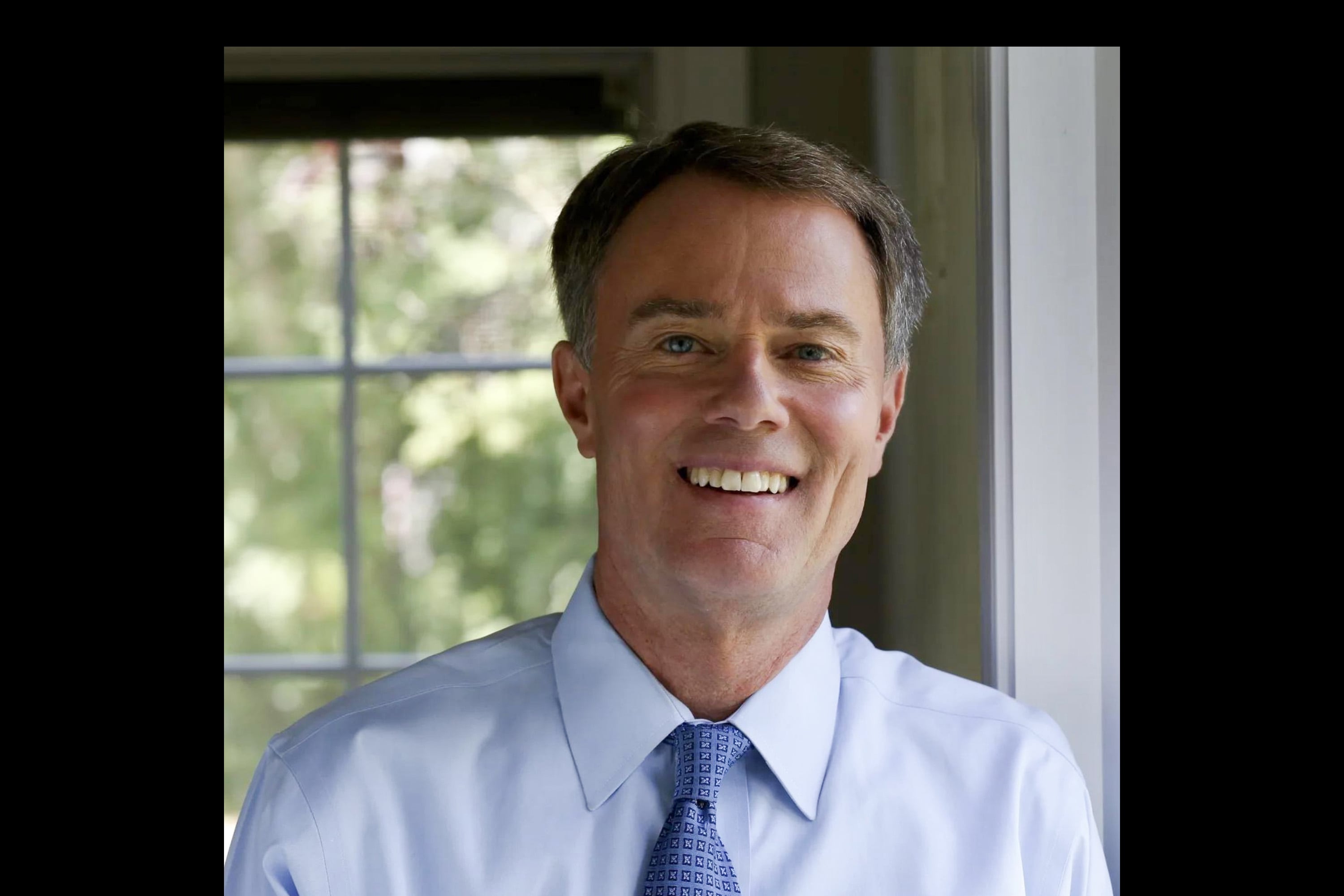Sign up for Chalkbeat Indiana’s free daily newsletter to keep up with Indianapolis Public Schools, Marion County’s township districts, and statewide education news.
Democratic incumbent Mayor Joe Hogsett secured a third term with nearly 60% of the vote against Republican opponent Jefferson Shreve, unofficial election results showed with roughly 97% of precincts reporting as of 10 p.m. on Tuesday.
Shreve conceded in a speech to supporters at a watch party broadcast on WTHR, telling the crowd: “We can be better and we will be better, but (Hogsett) has won the night.”
He also pointed to the lead that Democrats have in Marion County, calling it “sobering.” Unofficial election results showed that roughly 65% of voters cast straight Democratic party ballots compared to roughly 35% of voters who cast straight Republican ballots.
“We’ve just got to learn to work within that model to advance change and improve our city,” he said.
In his speech to supporters broadcast on WTHR, Hogsett said that the pandemic had undeniably delayed some progress for the city.
“Now, the voters have spoken. They have given us the chance to deliver on those challenges that yet remain,” he said. “Because there are guns to get off of our streets. There is affordable housing to build. There are students to support. There are small businesses to empower.”
Voter turnout increased slightly since the last municipal election in 2019, with roughly 26% of registered voters casting a vote, per the Marion County Election Board. In 2019, 153,977 people voted, compared to 164,677 ballots cast in Tuesday’s election.
Hogsett will continue to have significant influence over public education in Indianapolis, where the mayor’s office serves as an authorizer for new and existing charter schools. Those decisions are made by the Indianapolis Charter School Board within the mayor’s Office of Education Innovation. The board has nine members with six members appointed by the mayor.
Hogsett’s top three education priorities highlighted in Chalkbeat’s voter guide are high-quality oversight of mayor-sponsored schools, improving literacy rates, and ensuring students are prepared for life beyond high school.
But education took a back seat in much of the discourse surrounding the mayoral election, with debates focusing mainly on police, the status of downtown Indianapolis, and the city’s animal shelter.
To address gun violence’s impact on young people, Hogsett highlighted “common-sense gun safety measures,” such as increasing the legal purchasing age from 18 to 21 and requiring a permit to carry a handgun in Marion County. The Indiana state legislature prohibits cities from regulating firearms, but Hogsett said he would push for state preemption on local gun laws to be removed in upcoming sessions.
In Chalkbeat’s voter guide, Hogsett said that as mayor he will continue to hold mayor-sponsored charter schools to high standards, “while remaining engaged with their work so we know if we need to step in to offer support.”
Hogsett would not say whether he would support a potential operating referendum by Indianapolis Public Schools that the district could propose to taxpayers in the future. Instead, he noted, the decision will be made by taxpayers within the IPS district.
Provisional and military ballots still need to be counted on Nov. 17. The Marion County Election Board will certify the vote totals on Nov. 20.
Amelia Pak-Harvey covers Indianapolis and Lawrence Township schools for Chalkbeat Indiana. Contact Amelia at apak-harvey@chalkbeat.org.






